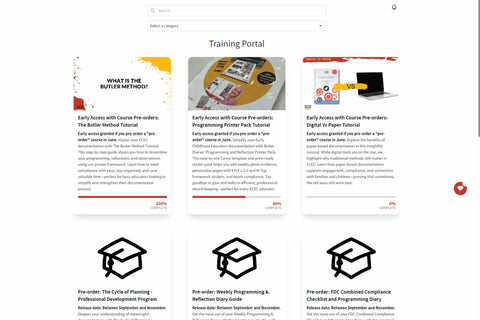If you’re starting up a new business or are looking at re-structuring, you may be trying to understand the differences and benefits between a Sole Trader, Company, Partnership, and Trust. But what do these terms mean? How are they different from each other? Can one over another save you money? What can and can’t they do? In this guide we explain each option in detail, so that you can decide which form of business structure best suits your needs and requirements.
Running your Trade Business as a Sole Trader
When you're self-employed and have no partners, it's called a Sole Trader. The major benefit to this business structure is that there are fewer formalities that need to be complied with before getting started.It also has the advantage of being very low cost – typically only requiring some simple documentation and nominal registration fees to start trading. In terms of starting out as a Tradie on tight budgets, a Sole Trader business structure might be just what you need.
As a Sole Trader you can still grow your Trade business and are able to hire other tradesmen and apprentices. You are still responsible for having Workers' Compensation Insurance and paying superannuation for your Tradies and Apprentices.
To summarise, the benefits of a Sole Trader Structure for a Tradie are:
- Simplicity
- You are in full control
- Generally cheaper
- Less reporting required
- You do not need to lodge a separate tax return (it falls under your personal tax return and TFN)
- You only need one bank account (although a separate bank account is usually recommended)
- You personally are liable for anything that goes wrong, this includes your personal assets such as your house and personal car
- You are responsible to pay tax on all your income
- Your profit or loss cannot be split between family members
- You are responsible for saving for and paying any superannuation for yourself
A Trade Company
Many people are under the false impression that a Company is necessarily more complicated and expensive to operate than a Sole Trader. What they don't realise is that in many cases the administration costs of operating a Company are offset by capital gains tax savings and lower rates of income tax.Whether a Sole Trader or Company structure is right for your Trade business depends on your profits. If you are small and making very small profits, it may be cheaper to be a Sole Trader and pay personal income tax rates. However, if you are operating on high profits, the company tax bracket of 28.5% (previously 30%) is significantly lower than the personal tax brackets, which can go as high as 49%. The additional costs of running a Company are worth it for the huge tax savings.
If you have big plans to grow and want to target the commercial industry, most investors will not consider a Sole Trader. Some customers may also prefer the professionalism of a Company over a Sole Trader. You are also granted a higher level of legal protection when operating a Company, there is a barrier between yourself and your customers and suppliers.
To summarise, the benefits of a Company for a Tradie are:
- Your business is legally separate from you
- You have more access to capital
- If you are earning large profits, you can save on tax
- You can switch to paying yourself by PAYG and cover your superannuation and tax obligations while leaving profits in the business to reinvest
- It is more complex to start with more reporting and legal requirements
- Higher start-up and running costs
Partnerships for a Trade Business
A Partnership can be an excellent way to start your own small business. You'll need to set up this legal structure if there are two or more partners in your Trade business. It is worth noting that individual States govern Partnerships so you should check out the Act relevant in your State before making any decisions.There are 3 main types of partnerships; General, Limited, and Incorporated Limited Partnership. A General Partnership means all partners are equally responsible for all activities to manage the business, and all have unlimited liability for its obligations. A Limited Partnership limits partners liability to only the amount of capital (money) they have invested in the Partnership, and they are usually silent investors who do not actively manage the business. Finally, Incorporated Limited Partnerships are the same as above, only there is one partner with unlimited liability who is personally liable for all obligations.
To summarise, the benefits of a Partnership for a Tradie are:
- Simple and cheap to set up
- Have fewer reporting requirements
- Tax is shared among partners
- Share control of the business (this will go as a benefit and downside because it depends on your partners, your situation, and what can happen in the future)
- Share control of the business
- Responsibility and liability can become complicated
- You are responsible for your own superannuation
Operating as a Trust
The most common alternative to the more well-known business structures are Trusts. A Trust means a trustee carries out business on behalf of beneficiaries. The trustee can be a person or a Company and is responsible for all income and losses.To summarise, the benefits of a Partnership for a Tradie are:
- It protects your assets
- They are expensive and complex
- Requires a formal trust deed
- Additional administrative tasks are required
- It can be difficult to dissolve or change
So which Structure is for you?
This table from the Australian Government helps summarise key differences in the four structures so you can make the right decision for you.

Now that you have chosen your structure, visit our Tradie Diary collection to help meet your reporting, compliance, and safety recordkeeping requirements.



















